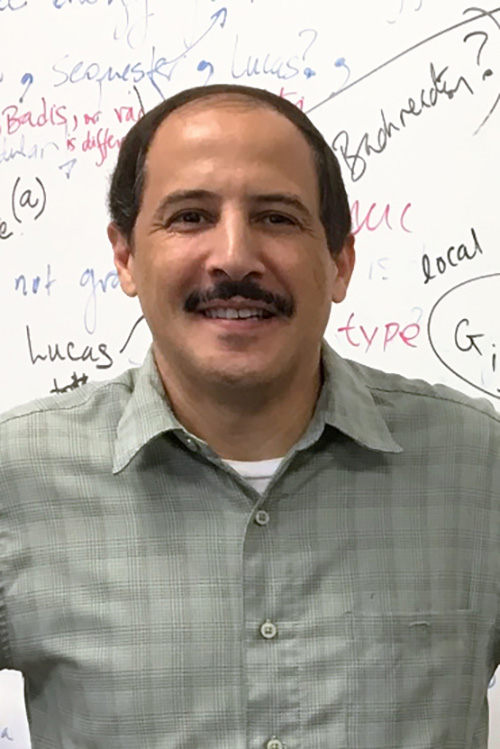Bioengineer, Physicist Earn Recognition for Distinguished Work
By: Office of Media Relations | Nov. 11, 2022

Dr. Shalini Prasad, professor and department head of bioengineering at The University of Texas at Dallas, was elected a fellow of the Royal Society of Chemistry (RSC). She is the first bioengineer at UTD to earn the honor.
Prasad also recently was elected to the 2022 Biomedical Engineering Society (BMES) Class of Fellows and was named a Fellow of IAAM (International Association of Advanced Materials).
The RSC, whose origins date to 1841, is the world’s oldest professional society of chemists and is dedicated to advancing the chemical sciences and enhancing the role that chemists play in the world. The organization is the European counterpart to the American Chemical Society. Fellows of the RSC are recognized leaders in the chemical sciences who have made exceptional contributions to the field and are committed to promoting the global value of chemistry.
BMES fellows are recognized for their impactful achievements and significant contributions to biomedical engineering. Fellow of IAAM is a distinction that recognizes researchers and scientists for contributions to advanced materials science, engineering and technology.
Prasad’s research focuses on designing miniature cellular and molecular platforms, with the goal of creating faster and more affordable clinical diagnostics. She and her team have designed a wearable sensor that can detect molecules associated with conditions, including diabetes, inflammatory bowel disease and sepsis. Most recently, they demonstrated technology that can detect two key biomarkers of infection in human sweat, a significant step toward making it possible for users to receive early warnings of infections such as COVID-19 and influenza.
“It is all in the chemistry. This is foundational to unlocking and simplifying design of sensors that impact the quality of human life and well-being,” said Prasad, a Cecil H. and Ida Green Professor in Systems Biology Science in the Erik Jonsson School of Engineering and Computer Science.
Earlier this year, Prasad was also elected a fellow of the American Institute for Medical and Biological Engineering for her pioneering work and received the UT Dallas President’s Teaching Excellence Award in Graduate/Professional Instruction.
American Physical Society Honors Professor

Dr. Mustapha Ishak-Boushaki, professor of physics in the School of Natural Sciences and Mathematics at The University of Texas at Dallas, was elected a fellow of the American Physical Society in October.
Fellows are selected based on their exceptional contributions to physics. Ishak-Boushaki, a theoretical astrophysicist, was cited for “distinguished contributions to the field of theoretical cosmology, particularly for testing modifications to general relativity at cosmological scales, and for sustained excellence in teaching and mentoring students in astrophysics and cosmology.”
Ishak-Boushaki’s research focuses broadly on the origin and evolution of the universe, including studies of cosmic acceleration, dark energy, gravity and gravitational lensing, and how these parameters affect cosmological models. He is a leading member of the Rubin Observatory Legacy Survey of Space and Time Dark Energy Science Collaboration and the Dark Energy Spectroscopic Instrument collaboration.
“I am honored to receive this external recognition in my field and delighted that the election quote includes both research and teaching accomplishments, exactly as I profoundly value each of them,” he said.
Ishak-Boushaki earned his PhD in cosmology and general relativity from Queen’s University in Kingston, Canada, in 2002 and joined the UT Dallas faculty in 2005, after working as a researcher at Princeton University. A fellow of the American Association for the Advancement of Science, he has received several awards for teaching and mentoring from UTD and was a recipient of a 2022 Regents’ Outstanding Teaching Award, which recognizes the best educators in the UT System.
Accolades is an occasional News Center feature that highlights recent accomplishments of The University of Texas at Dallas faculty, students and staff. To submit items for consideration, contact your school’s communications manager.
Media Contact:
Office of Media Relations, UT Dallas, 972-883-2155, newscenter@utdallas.edu, or the Office of Media Relations, UT Dallas, (972) 883-2155, newscenter@utdallas.edu.





